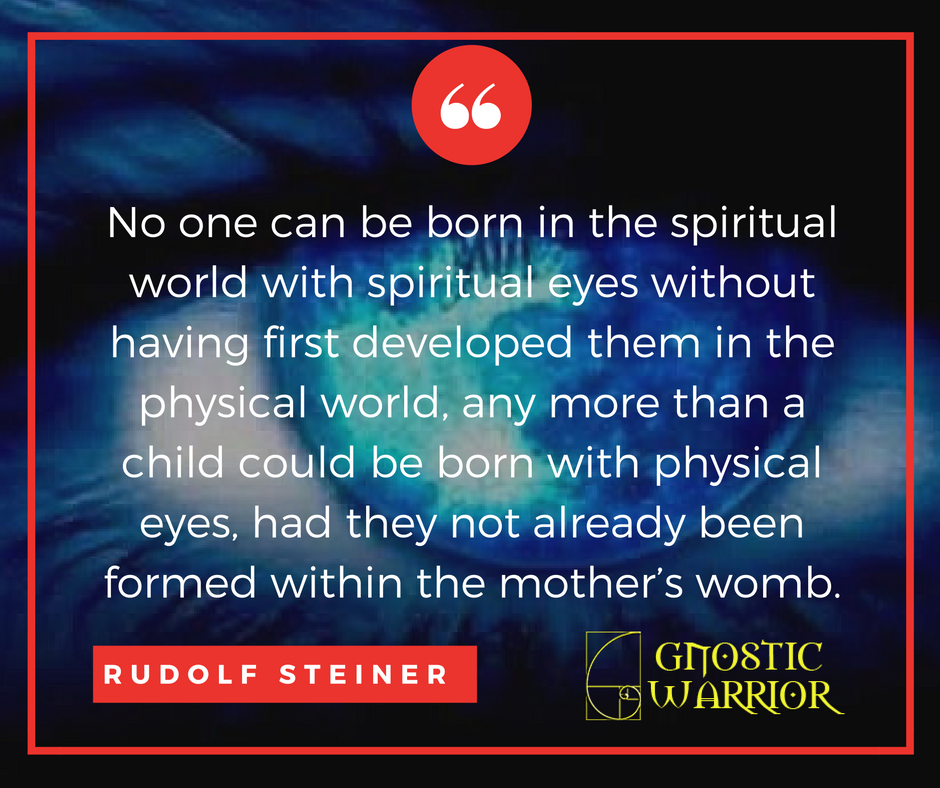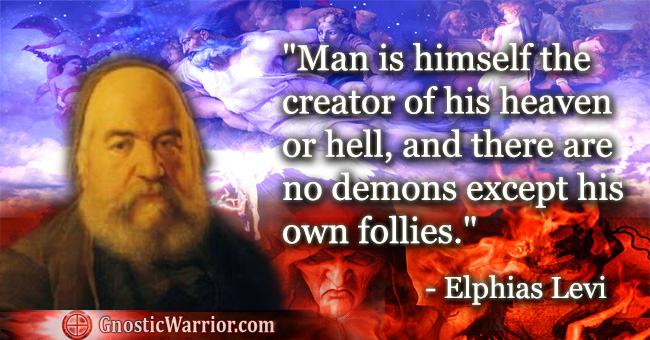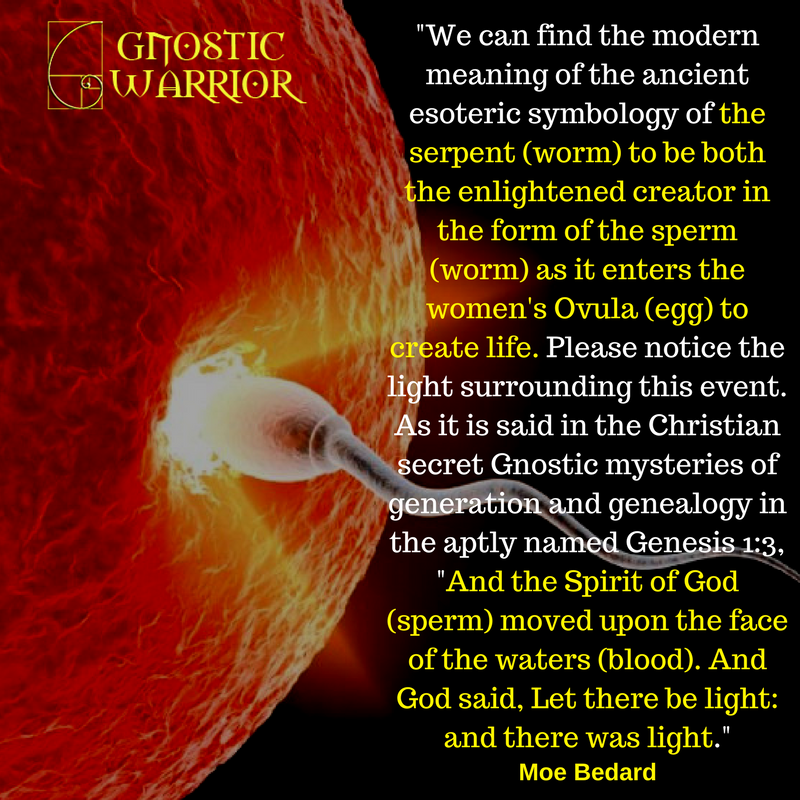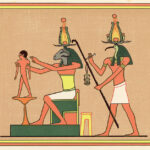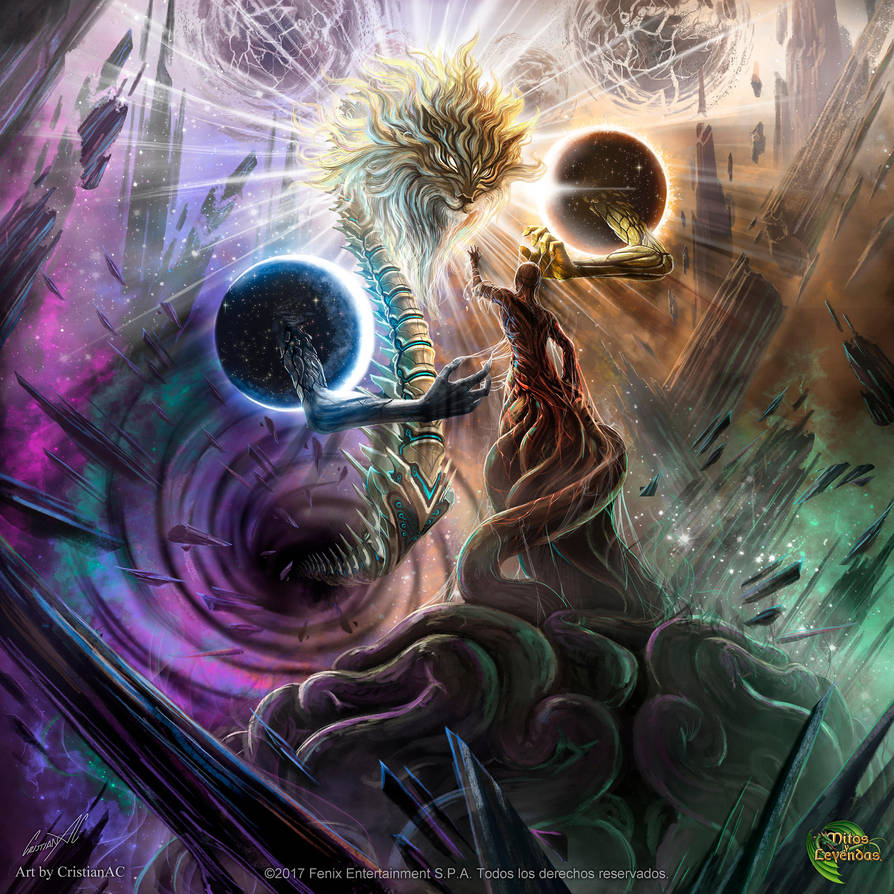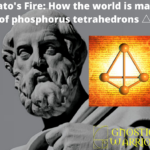“Now, God made the world for the sake of beings who were to be, as it were, co-workers with him in the creation of life.” – Plato
The ancient Greek philosopher, Plato had a profound understanding of the secret nature of reality, which he expressed in some of his most influential works such as “Timeaus.” It provides a unique perspective on the role of what he calls “the Craftsman”, also referred to as the “Demiurge” who possesses remarkable artistry and skill in shaping and creating the world.
Plato’s ideas of the demiurge take center stage as the creator responsible for shaping the physical realm we inhabit with purposeful intent.
This departure from traditional theological concepts of fate and hope challenges established notions of a supreme being that not only governs the universe, but every person’s consciousness. Unlike traditional religious beliefs attributing creation to a divine intelligence or a personal ruler, this perspective rejects the notion of creation as a purely metaphysical or abstract process undertaken by an all-powerful deity.
Another crucial aspect of his depiction of the Craftsman was the notion of purposeful creation.
Instead, Plato emphasizes the role of manual labor, skill, artistry, and purposeful creation as the driving forces behind the physical world. This perspective encourages us to reflect on the inherent order and harmony found within nature and the intricate interconnections between various elements of the cosmos and between all things – including human beings.
These ideas raise questions about the purpose and intention behind our existence and the role of the creator in shaping our minds and reality. As we delve deeper into Plato’s philosophy, we begin to question our preconceptions about what we know about the world and the nations and cultures we inhabit were truly created.
The Craftsman (Demiurge,” dêmiourgos, 28a6) is central to Plato’s philosophy in a dialogue between Socrates, Timaeus, Critias, and Hermocrates, in which they discuss various topics related to the nature of the universe. Timaeus, the main speaker in the dialogue, is a Pythagorean philosopher who argues that the Craftsman was both the creator and the ruler of the universe, responsible for the ongoing maintenance and perfection of all things.
The idea of the Craftsman is Plato’s explanation of Orphic mysteries with the God known as Theogonies Phanes – Zeus, the primordial God of creation who builds the world out of elemental or primordial matter. This concept has been very influential in philosophy, theology, science, and Freemasonry over the last two thousand-plus years.
For example, in the Abrahamic religions, God is the supreme deity who made the world and he guided human destiny and the idea of the Craftsman would align with Masonic concept of The Grand Architect of the Universe (T.G.A.O.T.U.).
Plato’s Craftsman also encompasses a wide range of scientific, metaphysical and epistemological ideas, all intricately intertwined within a concept he calls “Forms or Ideas.” This concept posits that the material world we perceive is but a mere reflection or imperfect copy of higher, eternal, and perfect forms.
These forms, according to Plato, exist in a transcendent realm beyond our physical reality.
His understanding of the Craftsman is deeply rooted in his metaphysics, which states that the world is made up of two distinct realms: the realm of Forms and the realm of the material world. Plato presents a cosmological account of the origin of the world with the Demiurge depicted as a skilled craftsman or artisan who utilizes pre-existing material and imitates the eternal Forms to shape the physical realm.
The realm of Forms is the realm of abstract concepts, such as beauty, justice, and goodness. The material world, on the other hand, is the world of physical objects that we can see, touch, and experience.
For Plato, the Craftsman was responsible for bridging the gap between these two realms.
Through the act of creation, the Craftsman brought the Forms into the material world, giving them shape and substance. This process of creation was not a one-time event but was continually shaping and perfecting the universe.
According to Plato, the Craftsman began by creating the world soul, which he describes as “the most divine and the most comprehensive of all things” (Timeaus 30b). The world soul is the animating force that gives life to the universe, providing the necessary energy for all things to exist and thrive.
As I have explained in previous essays, Plato’s world soul can be compared to the Freemasonic concept of The Grand Architect of the Universe and the All Seeing Eye. In the Abrahamic religions, we find this concept in the Eye of Providence and Heaven and in science as the Noosphere.
Plato argues that we can bring goodness and order to the world by shaping our lives to reflect the good because chaos is disturbing both physically and spiritually, It confuses our sense of the rightness and order of things.
Once the world soul was created, the Craftsman began to shape the physical world, starting with the four elements: earth, air, fire, and water. These elements were not created ex nihilo but were instead formed from the preexisting chaos that existed before the universe was created.
The Craftsman then combined these elements to create the physical world, including the stars, planets, and all living things. The process of creation was not haphazard but followed a divine plan that was preordained.
He explains that the Craftsman/Demiurge used the four elements – fire, air, water, and earth – to create the world. Using the principles of proportion and harmony to create a universe that is ordered and beautiful. Timaeus explains:
“Now, in dealing with the universe, he mixed the unintelligible with the intelligible, and the result was a visible universe which was both beautiful and intelligent” (30a). Here, he is suggesting that the Craftsman is able to create an ordered and rational universe by combining intelligible principles with unintelligible matter.
“The creator made the world a living being, with soul and reason, because he was good and wise. He also made the world beautiful and good, because he desired that it should be like himself. He made the universe out of fire and earth, and he mixed them together in the proportion of two to one. He then added air and water in due proportion, and out of this mixture he formed a globe, which he divided into seven circles, which he called the seven planets.”
In other words, the Craftsman is able to bring order out of chaos by using his intellect and skill to shape the raw materials of the universe into a harmonious whole.
Furthermore, the Craftsman is not a passive or indifferent creator.
Rather, he is deeply invested in the well-being of the universe and takes an active role in its ongoing development and maintenance. In Timeaus, Plato wrote:
“For it was necessary that it should be made as beautiful as possible and as good as possible. Hence, he who was to be a good creator, inasmuch as he was good, fashioned the universe with beauty as well as goodness” (30a).
Here, Plato is suggesting that the Craftsman is motivated by a desire to create a universe that is not only ordered and rational but also beautiful and good.
The Craftsman’s Role in Human Life:
Plato’s concept of the Craftsman is not limited to the creation of the universe. Rather, it has important implications for human life as well.
In Timeaus, he writes: “Now, God made the world for the sake of beings who were to be, as it were, co-workers with him in the creation of life” (31a).
Here, Plato is suggesting that human beings have a special role to play in the ongoing development and maintenance of the world in which we live. Like the Craftsman, our nations and societies should belt by intelligent design and skillful labor in which we are are all workers cooperating with one another in its fabrication.
The Craftsman was a perfect being, free from imperfection and error, and his creation reflected this perfection. As Plato explains, “He [the Craftsman] was good, and in him there was no variation or inconsistency; for being changeless, he was the cause of consistency in everything” (Timeaus 29e).
Furthermore, the Craftsman is responsible for endowing human beings with the ability to reason and intelligence to understand the world around them.
It is the source of all motion for the universe as a whole, the World Soul, and the soul of humans.
Timaeus argues that this source must be an efficient cause (Timaeus 27d). An efficient cause, he says, is one that acts without being acted upon.
In other words, it does not receive its motion from another source and so it can provide motion for other things by acting upon them directly. This means that there must be something, which acts without being acted upon in order to provide the first principle of all motion in the universe as a whole.
Plato’s concept of the Craftsman as the creator of the physical world introduces a fascinating perspective on the origins of our reality. By characterizing the Craftsman as a manual laborer, he highlights the deliberate craftsmanship involved in the shaping of the world.
Plato’s Craftsman invites us to contemplate the intricate relationship between the creator and the created, encouraging us to explore the boundaries between the natural and the artificial.
This idea challenges traditional beliefs and invites us to reconsider our understanding of the universe and our place within it.

Moe is the founder of GnosticWarrior.com. He is a father, husband, author, martial arts black belt, and an expert in Gnosticism, the occult, and esotericism.

